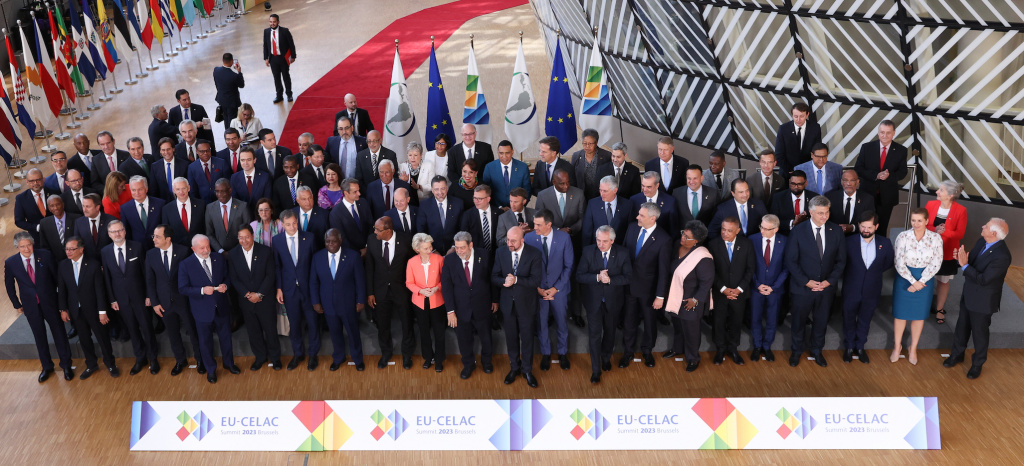July Summits: EU-CELAC Summit, a Bittersweet Victory for Latin America; Africa-Russia Summit, Another Brick in Building a Multipolar and Post-Hegemonic World
In
Log in if you are already registered
In July 2023, two notable international summits took place: the European Union-Community of Latin American and Caribbean States (EU-CELAC) Summit and the Africa-Russia Summit. Below are some impressions to assess to compare the implications of both events. A comparative analysis of the final declarations of both summits yields the following impressions:
Although the EU-CELAC Summit had a relatively positive outcome for the region (it could have been worse) in political and rhetorical terms, it recognized the harm caused by slavery, exploitation, and colonialism by former European metropolises in the Americas (although neither the summit documents nor public officials mentioned a concrete compensation plan for Latin America), it also acknowledged the illegality and illegitimacy of the criminal blockade against Cuba (again, no specific measures or deadlines were mentioned to reverse the situation). Moreover, it recognized the existence of a concrete sovereignty dispute over the Malvinas Islands (the Argentine designation for the islands is used in the final document, a significant novelty) between Argentina and Great Britain. The final summit declaration did not include any point that was clearly anti-Russian (the statement on the conflict in Ukraine only called for peace through instruments provided by international law and the UN).

The main concerns for those reflecting on the implications of relations between Latin America and the European Union are likely economic:
The EU has declared its intention to bring its Global Gateway infrastructure project to the Americas and to integrate its Latin American partners into strategic projects such as the transition to a green economy and joint exploitation of critical minerals -like lithium-. Additionally, there is mention of a commitment to making progress towards the conclusion of the EU-Mercosur agreement by the end of this year.
No matter how grandiloquent and well-intentioned European speeches and declarations towards the region may be, there will always be a bias of superiority towards Latin America, with consequent attempts to infringe on Latin American sovereignty (evidenced by European efforts to impose an anti-Russian stance on the region and even attempts by some European countries to invite Zelensky to the summit). If we observe the present and past, Westerners -both Europeans and North Americans- have a long tradition of promising much but fullfill very little, in economic terms, there are always risks of perpetuating Core-Periphery dynamics ad-infinitum.
Furthermore, for years, China has been the key economic partner to Latin America, raising the question of how the European Union will manage to displace the importance of the relationship with China in the region, this relation is key for the viability of the economies of many countries in the region.
Almost simultaneously in July 2023, African countries made a bolder move to insert themselves in the present world, where the pieces of a new order -the multipolar order- are starting to emerge and seek consolidation. They made their presence felt at the summit with Russia in St. Petersburg.
As seen concretely, Africans have had negative experiences with European colonialism and neocolonialism, and they seek their own margin of autonomy. Today, they take advantage of the global context of conflicts and competitions to gain leverage and act collectively to increase their bargaining power. Some African leaders have even shown outstanding pride and sovereignty attitudes, from which some Latin American leaders could learn.
As demonstrated at the recent summit with Russia, African countries have sought to break free from Western neocolonialism by promoting joint African action with new partners such as China and Russia.
Meanwhile, Latin America, especially since the political crises of 2019 and the Covid-19 pandemic, has been incapable of stablishing common stances on many relevant issues. The relevance of Latin America as a continental pole cannot be fully realized without joint actions.
In July 2023, Africa roared in favor of multipolarity and sovereignty, while Latin America is still trying to awaken.




